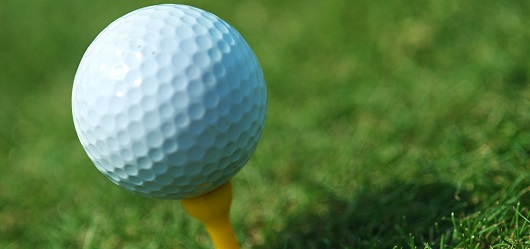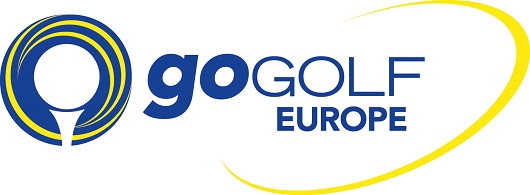Out of the rough: golf holds key to solving “crisis of inactivity”

Golf could hold the key to tackling Europe’s current epidemics of physical inactivity, obesity and low youth participation in sport.
As the world’s best golfers gather to compete in the 144th Open Championship in St Andrews this week, major organisations from the European golf sector will gather with researchers at the University of St Andrews in an effort to better describe the health benefits of golf, and to explore ways to increase participation across the EU.
The new GoGolf Europe project has successfully secured co-funding from the European Commission under Erasmus+, the EU programme for Education, Training, Youth and Sport for 2014-2020. The project will unite five European countries – the Czech Republic, Estonia, France, the Netherlands and Portugal – in a three year initiative designed to test innovative new access pathways to golf for European youth while also documenting the unique health benefits which the sport can provide to all people.
Richard Heath, General Secretary of the European Golf Association (EGA), the organisation leading the project, commented: “Europe has excellent capacity for golf with over 6,700 courses and some 7.9 million citizens already playing the sport. Nonetheless, we are facing significant challenges in effectively engaging young people to take up the sport and we are actively seeking innovative new solutions for growing youth participation.”
In conjunction with the EGA, the project will unite the National Golf Governing Bodies of the five participating countries alongside the PGAs of Europe, the European Observatoire of Sport and Employment, and the University of St Andrews as the official research partner. Alongside the funding support from the European Union, co-financing will also be provided by the PGA European Tour and the EGA.
Dr Rehema White, who works in Sustainable Development at the University of St Andrews, said: “Europe is currently experiencing a crisis in physical inactivity and we are going to focus on showcasing and documenting the particular contributions which golf can make to overcoming these worrying trends. The GoGolf project unites an excellent group of partner organisations with real potential to deliver positive and impacting change for the industry and we are very much looking forward to collaborating and providing support from the research perspective over the next three years.”
Current rates of physical inactivity are worryingly high, as evidenced by the recently published 2014 Eurobarometer report on Sport and Physical Activity which found that:
- 59% of EU citizens never or seldom exercise or play sport at least once a week
- Almost three-quarters of EU citizens (74%) say that they are not members of any club, a 7% increase since 2009.
Alongside the GoGolf Europe project mobilisation meetings taking place during The Open in St Andrews this week, representatives from the University of St Andrews will take part in further meetings concerning the growing global research agenda around the health and wellbeing benefits of golf participation. One such area of synergistic collaboration will be with scientists at the University of Edinburgh.
Dr White continued: “Amongst all sports, golf offers a unique suite of health opportunities. The aim of our research is to help us understand how to encourage young people to take up sport in general, and golf in particular, to improve their health and wellbeing.
“In Scotland we are lucky enough to have an existing network of golf clubs and courses, providing a mix of facilities. Anyone can pick up a club and chase their ball across the windblown and sheep grazed Askernish Golf Course on the Isle of South Uist, or around the green fairways of well-established Banchory or on one of the many urban courses scattered across Glasgow and Edinburgh. Visitors are offered a diverse choice of facilities around the country. Perhaps best of all, golf has one of the broadest age brackets – from 8 to 80 years old.”
More information on the GoGolf Europe project can be obtained by contacting the EGA office at [email protected]


Notes to news editors
The Europe 2020 strategy, which outlines the European Union’s vision for the 21st century, included sustainability as a key driver for economic growth and resource efficiency. In this context, the GoGolf Europe project’s ambition to grow the sport of golf in a sustainable way is in line with, and contributes to realising, Europe’s 2020 vision.
The GoGolf research project is funded by the European Commission under Erasmus+, the EU programme for Education, Training, Youth and Sport for 2014-2020. It will be implemented over three years.
The GoGolf project aligns with Golf Europe’s strategy to promote golf as a growing sport, valued as a force for good in European society. Golf Europe is a group of Europe’s major golf stakeholders collaborating to develop the sport and enhance golf’s contribution to European society.
The European Golf Association (EGA) represents the sport of golf throughout Europe and works on behalf of 46 member countries and their respective National Golf Associations. Approximately 7.9 million European citizens play golf in an industry that contributes over €15.1 billion to the European economy.
In conjunction with the EGA, the project will unite the National Golf Governing Bodies of the five participating countries: the Czech Republic, France, Estonia, the Netherlands and Portugal, alongside the PGAs of Europe, the European Observatoire of Sport and Employment, and the University of St Andrews as the official research partner. In addition to the funding support from the European Union, co-financing will also be provided by the PGA European Tour and the EGA.
Financial partners include the EGA and the PGA European Tour (PGAET).
More information is available via the 2014 Eurobarometer Report on Sport and Physical Activity.
Issued by the University of St Andrews Communications Office, contactable on 01334 462530 or [email protected].
Category Sport